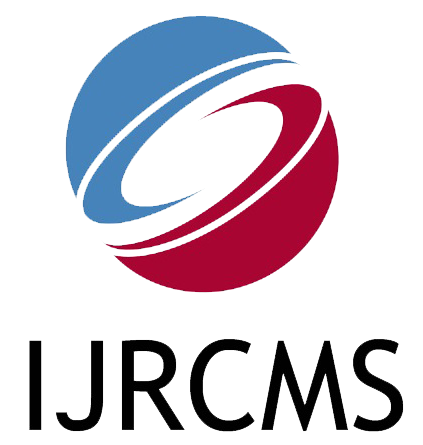| Title: MODERATION OF INTELLECTUAL INTELLIGENCE ON THE EFFECT OF FINANCIAL SKILLS AND FINANCIAL PLANNING ON WOMEN’S FINANCIAL LITERACY CAPACITY |
| Authors: Sihar Tambun and Fitri Nurwanti |
| Abstract: This article proves that intellectual intelligence is able to moderate the effect of financial skills and financial planning on women’s financial literacy capacity. The sample in this study consisted of 430 respondents from women in Indonesia. Data analysis using structural equation modeling partial least squares (PLS-SEM). Based on the results of the study, shows that financial skills have a significant effect on women’s financial literacy capacity which is moderated by intellectual intelligence and financial planning has a significant effect on women’s financial literacy capacity which is moderated by intellectual intelligence. The results of this study recommend that for women if they want to increase their financial literacy capacity, the main strategy that must be applied is to have good financial skills and financial planning and be strengthened by having adequate intellectual intelligence. Improving the financial literacy capacity of women is believed to be able to help increase the percentage of women’s financial literacy index in Indonesia and to equalize the gender gap. |
| Keywords: Financial Skill, Financial Planning, Intellectual Intelligence, Women’s Financial Literacy Capacity |
| DOI: https://doi.org/10.38193/IJRCMS.2023.5308 |
| PDF Download |
| References: Ajzen, I. (1991). The theory of planned behavior. Organizational Behavior and Human Decision Processes, 50 (2), 179–211. https://doi.org/10.1016/0749-5978(91)90020-T Amagir, A., van den Brink, HM, Groot, W., & Wilschut, A. (2022). saves The impact of a real-life financial education program for ninth-grade students in the Netherlands. Journal of Behavioral and Experimental Finance, 33, 100605. https://doi.org/10.1016/j.jbef.2021.100605 Choung, Y., Chatterjee, S., & Pak, TY (2022). Depression and financial planning horizon. Journal of Behavioral and Experimental Economics, 98 (July), 101877. https://doi.org/10.1016/j.socec.2022.101877 Cossa, A., Madaleno, M., & Mota, J. (2022). Financial literacy environment scan in Mozambique. Asia Pacific Management Review, XXXX. https://doi.org/10.1016/j.apmrv.2021.09.004 Darriet, E., Guille, M., & Vergnaud, J.-C. (2021). Financial literacy and numeracy. The Routledge Handbook of Financial Literacy, December, 96–109. https://doi.org/10.4324/9781003025221-10 Gallego-Losada, R., Montero-Navarro, A., Rodríguez-Sánchez, JL, & González-Torres, T. (2022). Retirement planning and financial literacy, at the crossroads. A bibliometric analysis. Finance Research Letters, 44 (May 2021). https://doi.org/10.1016/j.frl.2021.102109 Ghadwan, A., Wan Ahmad, WM, & Hanifa, MH (2022). Financial Planning for Retirement: The Mediating Role of Culture. Risks, 10 (5), 104. https://doi.org/10.3390/risks10050104 Golzarri-Arroyo, L., Dickinson, SL, Jamshidi-Naeini, Y., Zoh, RS, Brown, AW, Owora, AH, Li, P., Oakes, JM, & Allison, DB (2022). Evaluation of the type I error rate when using parametric bootstrap analysis of a cluster randomized controlled trial with binary outcomes and a small number of clusters. Computer Methods and Programs in Biomedicine, 215, 106654. https://doi.org/10.1016/j.cmpb.2022.106654 Hair, J., & Alamer, A. (2022). Research Methods in Applied Linguistics Partial Least Squares Structural Equation Modeling (PLS-SEM) in the second language and education research: Guidelines using an applied example. Research Methods in Applied Linguistics, 1 (3), 100027. https://doi.org/10.1016/j.rmal.2022.100027 Haleem, A. (2022). Influence of Financial Information Seeking Behavior on Financial Literacy of the Rural Residents . 6 (5), 4962–4970. Finance and Banking, J., Tambun, S., Rotua Sitorus, R., & Nurwanti, F. (2022). The Effect of Financial Literacy and Financial Education on Women’s Healthy Financial Behavior through Investment Motivation. Peer-Reviewed Article Journal of Finance and Banking, 26 (2), 2443–2687. https://doi.org/10.26905/jkdp.v26i2.7387 Kienzler, M., Västfjäll, D., & Tinghög, G. (2022). Individual differences in susceptibility to financial bullshit. Journal of Behavioral and Experimental Finance, 34, 100655. https://doi.org/10.1016/j.jbef.2022.100655 Kiszl, P., & Winkler, B. (2022). Libraries and financial literacy. Reference Services Review, August. https://doi.org/10.1108/RSR-01-2022-0005 Lin, C.-A., & Bates, TC (2022). Smart people know how the economy works: Cognitive ability, economic knowledge, and financial literacy. Intelligence, 93 (June), 101667. https://doi.org/10.1016/j.intell.2022.101667 Llados-Maslorens, J., & Ruiz-Dotras, E. (2022). Are women’s entrepreneurial intentions and motivations influenced by financial skills? International Journal of Gender and Entrepreneurship, 14 (1), 69–94. https://doi.org/10.1108/IJGE-01-2021-0017 Merkoulova, Y., & Veld, C. (2022). Stock returns ignorance. Journal of Financial Economics, 144 (3), 864–884. https://doi.org/10.1016/j.jfineco.2021.06.016 Mulatningsih, M., Indartono, S., & Efendi, R. (2022). The Effect of Emotional Intelligence and Intellectual Intelligence on Student Discipline. International Journal of Multicultural and Multireligious Understanding, 9 (3), 10–16. https://doi.org/10.18415/ijmmu.v9i3.3449 OECD. (2020). OECD/INFE 2020 International Survey of Adult Financial Literacy. OECD/INFE 2020 International Survey of Adult Financial Literacy, 78. www.oecd.org/financial/education/launchoftheoecdinfeglobalfinancialliteracysurveyreport.htm Financial Services Authority. (2019). National Survey of Indonesian Financial Literacy and Inclusion 2019. Survey Report, 1–26. www.ojk.go.id Sconti, A. (2022). Digital vs. in-person financial education: What works best for Generation Z? Journal of Economic Behavior & Organization, 194, 300–318. https://doi.org/10.1016/j.jebo.2021.12.001 Sekita, S., Kakkar, V., & Ogaki, M. (2022). Wealth, Financial Literacy and Behavioral Biases in Japan: the Effects of Various Types of Financial Literacy. Journal of the Japanese and International Economies, 64 (July 2021), 101190. https://doi.org/10.1016/j.jjie.2021.101190 Shih, H.-M., Chen, BH., Chen, M.-H., Wang, C.-H., & Wang, L.-F. (2022). A Study of the Financial Behavior Based on the Theory of Planned Behavior. International Journal of Marketing Studies, 14 (2), 1. https://doi.org/10.5539/ijms.v14n2p1 Struckell, EM, Patel, PC, Ojha, D., & Oghazi, P. (2022). Financial literacy and self-employment – The moderating effect of gender and race. Journal of Business Research, 139 (October 2021), 639–653. https://doi.org/10.1016/j.jbusres.2021.10.003 Twumasi, MA, Asante, D., Fosu, P., Essilfie, G., & Jiang, Y. (2022). Residential renewable energy adoption. Does financial literacy matter? Journal of Cleaner Production, 132210. https://doi.org/10.1016/j.jclepro.2022.132210 Van Nguyen, H., Ha, GH, Nguyen, DN, Doan, AH, & Phan, HT (2022). Understanding financial literacy and associated factors among the adult population in a low-middle income country. Heliyon , 8 (6), e09638. https://doi.org/10.1016/j.heliyon.2022.e09638 |
International Journal of Research in Commerce and Management Studies (IJRCMS)
ISSN 2582-2292, An open access bi-monthly e-journal
